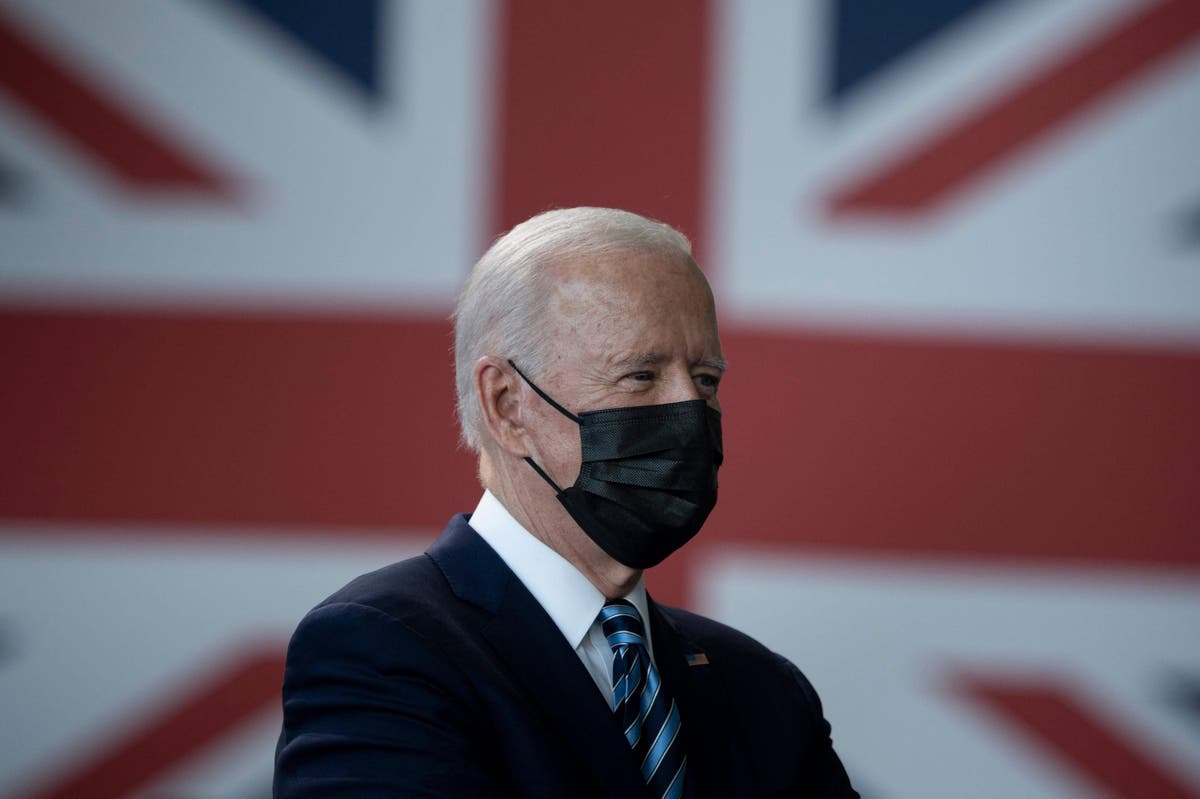2020 was the year Boris Johnson threw away public trust | Boris Johnson
In the spring of this year, Boris Johnson was World King. A Morning Consult poll in April found that he was the most popular leader in the western world. In January, at a focus group I ran in Darlington, first-time Conservative voters described him as “strong”, “decisive” and “his own man”. He was a leader who would get things done and was one of the first politicians they could remember who seemed to care about the long-ignored place in which they lived. And, for that first portion of the year, there was a flash of something not seen since Tony Blair’s election win in 1997: a remarkable sense of public trust, with voters willing to believe that Johnson’s Conservatives might actually deliver what they had promised.
Now Johnson sits near the bottom of the world leader rankings. “Weak”, “confused”, “out of his depth” are the words that come out of focus groups today. Voters, especially those in the so-called “red wall”, describe the prime minister as a “puppet”, controlled by his advisers. Though they tend to think he is trying his best, they question his competence. He does not attract the same hate that one sees on Twitter, but he is seen as a figure to be pitied as he drags himself to the podium of yet another press conference. Getting a Brexit deal may seem to have given him a Christmas boost, but – given the low salience of the issue to many voters – it is unlikely to permanently change the public’s view of him. He is no longer world king, but seen to be a lost man.
What caused this transformation? It was not the onset of the pandemic itself. As Johnson was locked in his own battle with the virus and was moved into intensive care in April, the mood became apolitical, the country held in a kind of sickly trance as it felt what the writer Matthew d’Ancona described as “a wave of profound empathy, matched by profound anxiety” for their leader. The prime minister recovered, and on his first day out of hospital he filmed a video from Downing Street thanking the NHS, an authentic speech hailed across the political divide. People were ready to put their faith in him to lead us through and out of the pandemic.
Next came a series of unforced errors that would unravel public trust almost as quickly as it was built and transform how Johnson was seen.
The first move came on 10 May, when he announced the easing of lockdown measures. This was never going to be an easy task, but a confusing set of rules, an unrelatable and soon ditched slogan of “stay alert” and mixed messaging on working from home brought widespread bewilderment and mockery. A video of the comedian Matt Lucas ridiculing the prime minister’s inconsistency was released and went viral; it’s still mentioned in focus groups today. It was also that weekend that internal polling by the government showed that approval for its handling of the pandemic had gone into the red for the first time.
This confusion over coronavirus communications continued throughout the year. The result is that strikingly few people can describe what the rules are in their own area – indeed, merely asking the question leads to derisive laughter. It has not only been the communication itself, but the speed at which changes have been announced. Whether on awarding predicted grades for exams, the November lockdown, or changes to the Christmas rules, the public wearily knew these things should and eventually would happen. Every time the public themselves were ahead of the curve, and Johnson and the government were behind it. As yet another inevitable decision was finally made, people came to think more and more that the man who was meant to lead them was following them instead.
But no moment was as significant as the prime minister’s response to Dominic Cummings’s trip to Barnard Castle. The drive itself might well have been forgiven, but the sneering attitude from Cummings himself, as well as the prime minister’s failure to sack him, cut deep as people felt their own personal sacrifices were now meaningless. The final blow was the explanation that Cummings drove 20 miles to test his eyesight – which prompted ridicule, derision, and collective scorn. Far from the “Westminster bubble” story that Cummings felt it was, it was a saga that gripped the country. In a focus group I ran with former Labour voters from Bridgend, only two could name the leader of the Labour party, but every single one of them knew who Downing Street’s chief of staff was.
People are right to say that voters may not remember Barnard Castle by the time of the next election. But the impact it has had on the Conservative brand may well outlast memory of the event. In a poll of red wall voters by my firm, JL Partners, the Conservatives lag Labour on which party “shares your values” and “stands up for people like me”. The old concerns about the Tory brand are rearing their head again among the first-time Conservative voters. They have no natural affinity for the Conservatives, and the events around Barnard Castle are named as one of their main reasons to now doubt the Conservatives’ intentions.
This is where we are now. Johnson is not hated, as one might assume from a glance at Twitter, but is pitied. Characteristics that voters used to like about him are now spoken about as weaknesses. His scruffy appearance (“loveable” a year ago) is now seen as evidence that we are not a “serious country”. As he stood at the podium during a press conference last week and ruffled his hair, it almost felt like he was stuck in the past, relying on his old playbook and unable to calibrate to a new one suited to a pandemic.
But despite this, for all that Johnson’s brand has diminished this year, it has not been destroyed. There has not been an “ERM moment”, trashing a party for good. The Conservatives remain at 40% in the polls, and Johnson has an approval rating higher than all three of his immediate predecessors had at this point in their premierships. While red wall voters have had their faith in him shaken, Conservative-leaning remain voters in the south – as Chris Curtis has pointed out – feel he is more caring than he was before the pandemic began. Even now, with the cancellation of Christmas and turmoil at the borders, people have largely blamed the chaos on the new strain of the virus rather than government handling.
The main protective shield around Johnson is the very thing that has so haunted his year: the virus. It has shielded the government from a truly destructive reputational moment. This could yet come – but a Brexit agreement means that a chaotic no-deal scenario won’t be it. For now, diminished as he is, Johnson limps on with another chance. Untrusted politicians can and have won elections, and the Conservatives still look competitive against Labour. Though Keir Starmer has removed a great deal of toxicity from his party by simply not being Jeremy Corbyn, profound concerns remain about Labour’s record on the economy and immigration, and his approval rating is falling.
For it is not Johnson’s future that is the political casualty of 2020. It is something far more precious – public trust itself. It is a rare thing to have a Darlington shop worker say they think a government may finally pay attention to them, to believe that things may finally be different. In a world of populist parties on the extremes, dislocation between people and government, the enthusiasm and belief after Johnson’s speech about the NHS was a rare gift the prime minister held. Approval ratings were always going to come down, and challenges were always going to surface, but here was a golden and precious chance to recast public faith in our democracy.
This year, that fledgling faith was snuffed out. According to Ipsos-Mori, trust in government ministers as of November was at its lowest point since the expenses scandal in 2009. Our leaders are either laughed at or pitied, politicians are once again decried, and communication from government is met with derision. The seeming reality of an independent-minded politician has been dashed and replaced with the old view that they are mere mouthpieces for backroom advisers. The question voters are asking is no longer whether politicians will deliver for them, but once again whether they care about ordinary people at all. None of this was inevitable; in some other countries it did not happen.
Some might say this is a minor loss, a moment that only comes up once in a while, a blip that will not be much mourned. But it is the rarity of such an opportunity that makes its loss so acute. Sacrificed on the altar of Barnard Castle, as well as the other unforced errors that littered this year, was not Johnson’s political future but faith in our system itself. The wasting of the opportunity to nurture and foster that fragile faith is the real legacy of this torrid year.





